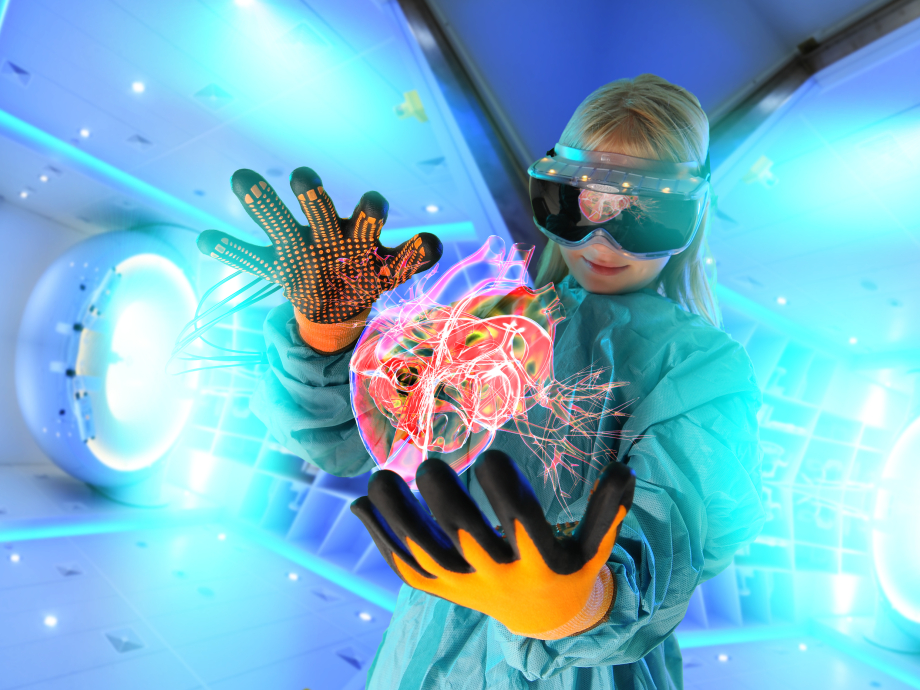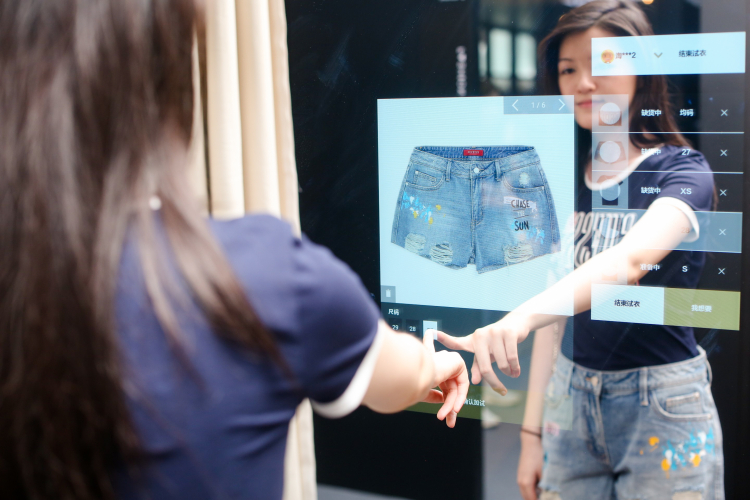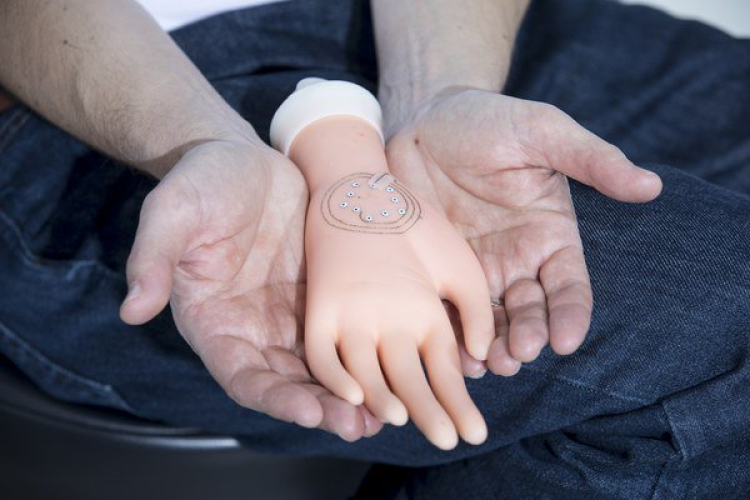Making perfect lives: e-health, genetic modification and sustainable food
The Rathenau Instituut has been studying the ethical and societal impact of medical research and health technology for many years. This programme builds on our previous work. Dutch society has widely differing views on these issues, something that is reflected in political debates.

This item discusses making perfect lives, one of the four themes for our 2019-2020 work programme. The other themes are digital society, knowledge for democracy, and knowledge ecosystems.
Questions about life and death are not purely individual matters for humans – after all, we are social beings. Nevertheless, autonomy over our bodies and selfdetermination are among society’s great assets. That explains the tendency in political debate and in the media to focus on the tension between individual needs and collective values, and also why there is so much emphasis on the different ways that groups in society judge what is good. Every new technology has its own specific features, but all new technologies raise the same questions, again and again. Innovations that we have examined in recent years include germline genetic modification, human-animal hybrids, human embryo research, regenerative medicine, the organ trade and risk assessment and legislation surrounding new technology.
The role of the Rathenau Instituut
It is the Rathenau Instituut’s aim to reveal how public values and specific interests evolve along with new technologies, to give voice to patients’ experiences (in addition to those of medical and ethical experts), and to show how new patterns of inclusion and exclusion can emerge. We shed light on new medical research and what is already possible in clinical practice, but also on the need for new frameworks.
Dialogue: images on ideal health
We initiate dialogue ourselves where necessary but note that many of these issues are already being discussed in society. It suits us to document the arguments and to ensure that societal and political debate is sensitive to various aspects. Where there is no debate, we use our expertise to support an inclusive discussion by others. We cooperate with the Health Council of the Netherlands and the Ministry of Health, Welfare and Sport, among others.
In recent years, our research has revealed the vulnerability of human beings in this area and shown that, in addition to moral considerations, economic interests also play a role: there is a lot of money to be made from our longing for a meaningful life and for perfection.Beauty, health, fertility, life and death are subjects that rouse feelings of uncertainty in us. A new concept of health is also emerging in which the boundary between illness and health is becoming blurred. The focus now is increasingly on the quality of life. We are also being told to take control of our own health.
But who is protecting us and our collective health when we ourselves cannot anticipate the risks or simply change our behaviour overnight, even with tools to monitor ourselves and with access to medical data, health coaches and apps? In the next two years, we intend to address these images of ideal health.

Research into technological advancement
We will continue to examine cutting-edge technology and what is already feasible in the Netherlands and worldwide. How soon can we expect new inventions in the lab to be available? What do people in different countries think about the associated ethical, societal and legal issues? How much of our lives do we want to open up to biotechnological and medical improvements? As a society, do we understand the consequences and risks of these new technologies? How do we reconcile individual autonomy and the right to self-determination on the one hand with public values and economic and commercial interests on the other? And how do new technologies change our perception of a good and healthy lifestyle and the limits of life itself?
We are also examining how new technologies are changing institutions within the healthcare and care system, and how we are redefining the concept of ‘quality of life’ based on new scientific insights, including in the field of nutrition. Within the ‘Making perfect lives’ theme, we will be conducting new research on three topics:
How much of our lives do we want to open up to biotechnological and medical improvements?
Individual perfection for birth, body, and long life
Innovations in medical technology make pregnancy feasible even when it seems biologically impossible. For example, somatic cell nuclear transfer could be used to breed children who have more than two biological parents. Researchers in China were the first to clone two macaques and to edit the DNA of human twins in such a way that their new traits will be passed to their offspring.
Artificially produced sperm and egg cells show how much life, body and technology are becoming intertwined. Our legal and moral frameworks were established long before these techniques were introduced. Do they need an update or are they still fit for purpose? The same question arises in a completely different area, specifically in regenerative medicine. This generic name covers a range of techniques that can improve the well-being of the chronically ill and compensate for the physical limitations of the elderly, but can also be used to keep our bodies looking good for longer. These techniques may offer a solution when there is a shortage of tissue donors (ranging from gametes to livers), commercial trade is questionable, the revenue models are unclear and diverging interests are at stake. Or can organs produced by 3D printers solve the dilemmas surrounding organ donation and transplantation?
Our knowledge of the building blocks of life, health, ageing and human behaviour has increased enormously in recent years. We have medical research to thank for this, but the social sciences and humanities have also played an important role, for example studies on happiness and well-being and data-driven behavioural research. Much of this knowledge is in the hands of commercial enterprises. All these technologies challenge existing frameworks. In the years ahead, the Rathenau Instituut will continue to keep track of the relevant trends and developments.
Read more on genetic modification.

Prevention and care in transition
Regional hospitals are failing, university hospitals are merging, medical care is increasingly being provided at home, and the elderly are living on their own for longer with the help of e-health technology and robot caregivers. The healthcare of the future is taking shape today. How can we comprehend these changes and what role do research findings and new technologies play?
It is proving difficult to prevent disease by encouraging people to eat healthier, quit smoking and take more exercise, and the likelihood of their succeeding evidently depends on their income and socio-economic context. DNA profiles and apps can help by personalising our lifestyles, but digital technologies focusing on e-health and health behaviour raise questions about security, effectiveness and who is responsible. Is lifestyle medicine causing us to medicalise normal behaviour? Does our health belong to us, to the healthcare professional, to the app or to the industry that is driving these advances? How is our perception of depression being changed by face scans on our phone, for example? How does the role of care professionals change when they rely on technology to reach a diagnosis and set out a course of treatment? How do we divide up the responsibilities? What leeway is left for such concepts as solidarity, care and autonomy?
The Rathenau Instituut is assessing the consequences for society of these rapid changes in prevention and healthcare across various dimensions, such as public values, educational needs, and affordable and futureproof care.
The healthcare of the future is taking shape today.
Health, lifestyle and sustainable food
The Netherlands has a rock-solid position in agriculture and nutrition, both economically and in research. But how do we ensure that the health of people, animals and the environment takes precedence in this context? In the light of urbanisation, climate change, technological advances, the renewed interest in animal welfare and the globalisation of food chains, farmers and the public are becoming increasingly uncertain about ‘the current system’.
The issues are diverse: can genetic engineering solve the problems in agriculture, how much are individuals themselves responsible for choosing healthy and sustainable food and which technology can help them do so, and what does the transition to a sustainable food system mean for our agricultural policy?
By tracking the science, the Rathenau Instituut aims to help us transition to an agri-food system that is sustainable for the ecology, for farmers, for industry and for the public. We will kick off our work in this area in 2019 by partnering with the organisers of ‘It’s the Food my Friend’, an annual series of debates on agriculture and food in Amsterdam. We will use the series to highlight our ongoing research, for example on ammonia emissions, CRISPR-Cas and the Potarei hybrid potato seed project. We are working with international partners to prepare a project on the global ethics of sustainable and healthy food.